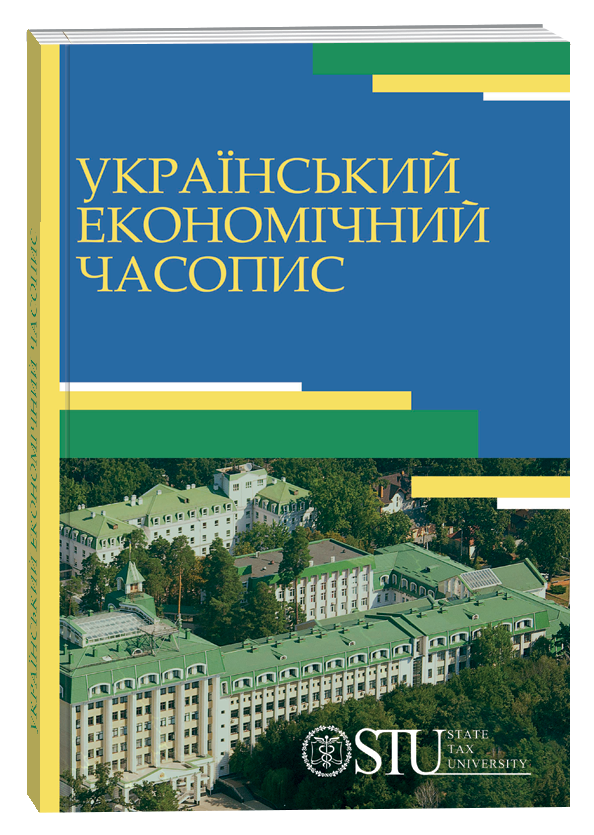CONDITIONS FOR ENSURING A CONTROLLED IMPACT TO FORM AN ADAPTIVE APPROACH TO THE PROCESS OF RESPONDING TO FRAUD RISKS DURING QUALITY CONTROL INSPECTIONS OF AUDIT SERVICES
DOI:
https://doi.org/10.32782/2786-8273/2024-6-24Keywords:
audit, international standards on auditing, audit public oversight, quality control review, risk of material misstatement, expectations gap, fraud, audit qualityAbstract
Introduction. The increasing threat of fraud, particularly related to financial statement manipulation, is a significant concern during economic and political crises. Despite audits being a crucial method for fraud detection and prevention, auditors rarely identify fraudulent activities. Consequently, there is a growing concern among financial statement users regarding the auditors' responsibilities in detecting fraud. Enhancing the methodology of public oversight to ensure compliance with international auditing standards related to fraud and revising the auditors' responsibility doctrine is essential for improving confidence in financial reporting quality. Purpose. This study aims to identify and substantiate methodological approaches to verifying compliance with International Standard on Auditing (ISA) 240 during external quality control of audit services. The objectives include defining the purpose of quality control inspections related to auditors' fraud responsibilities, identifying factors influencing the likelihood of detecting deficiencies, and suggesting improvements to the regulatory framework for quality control inspections. Methods. The research combines various scientific methods, including analysis of existing literature and legislation, examination of inspection reports, and surveys of quality control inspectors. The study focuses on audits conducted in 2023, particularly under the conditions of martial law, to assess the impact of new fraud risks on audit quality. Results. The analysis of completed quality control inspections revealed that 72.6% of the audit engagements had significant deficiencies in applying ISA 240. The study established a direct correlation between the use of technological resources for audit documentation and the likelihood of detecting deficiencies. Audits that utilized audit data analytics software for analyzing journal entries had a lower probability of significant deficiencies. Furthermore, the study highlighted the variability in the time spent on statutory audits of large entities, suggesting that shorter audit times might indicate missed audit procedures and higher risks of deficiencies. Conclusion. The findings underscore the need for integrating advanced technological tools, such as artificial intelligence, for data analysis and fraud detection in financial statements. The research also suggests that improving the inspectors' training on fraud-related issues and adapting the risk-oriented approach in quality control inspections can significantly enhance the overall effectiveness of these inspections. These measures will contribute to reducing the expectations gap between the public and auditors regarding fraud detection responsibilities, ultimately strengthening economic security and investor confidence.
References
Міжнародні стандарти контролю якості, аудиту, огляду, іншого надання впевненості та супутніх послуг, видання 2020 року. Частина 1. : Рада з міжнародних стандартів аудиту та надання впевненості URL: https://mof.gov.ua/storage/files/Міжнародні_стандарти_контролю_якості__аудиту_2020_ч1.pdf
Sir Brydon D. Report of the independent review into the quality and effectiveness of audit. London, 2019. 138 p.
Association of Certified Fraud Examiners, Inc. Occupational Fraud 2024: A Report to the Nations. Austin, USA, 2024. 106 p.
International Auditing and Assurance Standards Board. Fraud and going concern in an audit of financial statements – Expectation GAP. New York, USA, 2020. 35 p.
International Auditing and Assurance Standards Board. Proposed International Standard on Auditing 240 (Revised): The Auditor's Responsibilities Relating to Fraud in an Audit of Financial Statements and Proposed Conforming and Consequential Amendments to Other ISAs. Official edition. New York, USA, 2024. 162 p.
Про аудит фінансової звітності та аудиторську діяльність: Закон України від 21.12.2017 р. № 2258-VIII: станом на 16 берез. 2024 р. URL: https://zakon.rada.gov.ua/laws/show/2258-19#Text
Рекомендації щодо проведення перевірок з контролю якості аудиторських послуг та інших перевірок : Рішення Ради нагляду за аудит. діяльністю Орг. сусп. нагляду за аудит. діяльністю від 27.10.2023 р. № № 3/9/63. URL: https://www.apob.org.ua/wp-content/uploads/2023/11/Рекомендації-з-проведення-перевірок.pdf
International Auditing and Assurance Standards Board (2021), “Handbook of International Quality Control, Auditing, Review, Other Assurance, and Related Services Pronouncements, 2020 Edition, Part 1”. Available at: https://www.mof.gov.ua/storage/files/Міжнародні_стандарти_контролю_якості__аудиту_2020_ч1.pdf (accessed July, 30 2024).
Sir Donald Brydon (2019) Report of the independent review into the quality and effectiveness of audit. London, UK, 138 p.
Association of Certified Fraud Examiners, Inc. (2024) Occupational Fraud 2024: A Report to the Nations. Austin, USA, 106 p.
International Auditing and Assurance Standards Board (2020) Fraud and going concern in an audit of financial statements – Expectation GAP. New York, USA, 35 p.
International Auditing and Assurance Standards Board (2024) Proposed International Standard on Auditing 240 (Revised): The Auditor's Responsibilities Relating to Fraud in an Audit of Financial Statements and Proposed Conforming and Consequential Amendments to Other ISAs. Official edition. New York, USA. 162 p.
The Verkhovna Rada of Ukraine (2017), The Law of Ukraine “On the audit of financial statements and audit activities”. Available at: https://zakon.rada.gov.ua/laws/show/2258-19#Text (accessed July, 30 2024).
Audit Oversight Board of the Audit Public Oversight Body of Ukraine (2023), “Recommendations for conducting inspections to control the quality of audit services and other inspections”. Available at: https://www.apob.org.ua/wp-content/uploads/2024/05/Рекомендації-з-проведення-перевірок-із-змінами.pdf (accessed July, 30 2024).



